Adapting to a changing regulatory landscape and managing new requirements can be frustrating. At the same time, non-compliance can lead to serious consequences. This blog offers top regulatory compliance software to help you manage compliance effectively with a high level of control.
Many organizations struggle to keep up with changing regulatory requirements, leading to compliance issues and potential legal problems. Managing complex regulations manually is time-consuming and prone to errors, causing frustration and stress for compliance teams. This inefficiency can result in missed deadlines, penalties, and damaged reputations. That's where regulatory compliance software comes into play.
Regulatory compliance software addresses all these challenges by providing advanced features to manage and streamline compliance processes. It offers centralized control and real-time updates, making adhering to various regulatory standards easier.
However, choosing the right regulatory compliance software is critical for effective compliance management. To simplify your search, we'll cover top regulatory compliance software tools, highlighting their functionalities, features, and benefits for security and compliance teams.
Features To Consider Before Selecting A Regulatory Compliance Software
Regulatory compliance software helps organizations adhere to industry-specific laws, regulations, and standards. Here are some key features that you must consider before choosing regulatory compliance software for your organization:
- Complete Compliance Coverage
Compliance coverage ensures that the regulatory compliance software supports all relevant regulations applicable to your industry, whether they are local, national, or international. This feature is crucial because it allows organizations to align with legal requirements specific to their business operations. By covering a wide range of regulations, the software helps mitigate non-compliance risk, leading to legal penalties, reputational damage, and operational disruptions.
- Automated Monitoring and Alerts
Automated monitoring and alerts enable the software to continuously track regulatory changes and notify users promptly about updates and deadlines. This feature is essential because regulatory landscapes are dynamic and constantly evolving. By automating monitoring processes, organizations can stay updated in real-time, reducing the risk of missing critical regulatory changes.
- Centralized Compliance Management
Centralized compliance management consolidates all compliance activities, documents, and workflows into a unified dashboard or platform. This feature streamlines the management of compliance initiatives across the organization by providing a single source of truth. It simplifies tracking, auditing, and reporting processes, which are essential for demonstrating compliance during audits or inspections.
- Risk Assessment and Management
Regulatory compliance software includes tools for identifying, analyzing, and mitigating compliance risks. This feature is critical because compliance risks can vary in severity and impact on business operations. By conducting risk assessments, organizations can prioritize risks based on their potential consequences and likelihood of occurrence.
- Document Management
Robust document management capabilities allow organizations to store, organize, and retrieve compliance-related documents efficiently. This feature ensures that all necessary documentation, such as policies, procedures, certifications, and audit reports, is readily accessible for audits or inspections. By maintaining accurate and up-to-date documentation, organizations can demonstrate adherence to regulatory standards and facilitate collaboration among stakeholders involved in compliance activities.
- Reporting and Analytics
Comprehensive reporting and analytics tools enable organizations to generate detailed compliance reports, track compliance status, and analyze trends related to regulatory adherence. This feature provides valuable insights into compliance performance, regulatory risks, and areas for improvement. Further, teams can identify compliance gaps, monitor key performance indicators, and measure the effectiveness of compliance initiatives.
Now that you understand the essential features and criteria to consider in regulatory compliance software, we are all set to delve into our list of tools. But before we delve into the regulatory compliance management software list, let me introduce Zluri.
0. Zluri

If you need more than just regulatory compliance software and want solutions that improve audit capabilities and security measures, Zluri is here to help. It offers a comprehensive access review solution designed to streamline compliance audits effectively.
Zluri excels at swiftly assessing access and providing detailed visibility into users, roles, and entitlements across all applications. Whether your organization needs to comply with SOX, HIPAA, GDPR, or PCI DSS regulations, Zluri ensures adherence to diverse regulatory frameworks while enhancing overall security posture.
One of Zluri's key strengths is providing real-time data on access and compliance risks, empowering organizations to stay proactive and informed. Additionally, Zluri enables the generation of detailed reports on user activities, actions taken, and reviewer insights. It also automates access remediation processes, swiftly addressing overprivileged access issues and strengthening defenses against potential security threats.
Want to learn more? Schedule a personalized demo & see how Zluri can streamline your compliance audits and bolster your organization's security measures.
Top 11 Regulatory Compliance Software
Below are the top 11 regulatory compliance software solutions to streamline your compliance efforts and ensure adherence to industry standards.
1: Complinity

Complinity is a robust legal compliance solution—a comprehensive framework and software platform crafted to help organizations manage and ensure adherence to relevant laws, regulations, standards, and internal policies governing their operations.
The platform provides a centralized compliance monitoring framework and a comprehensive checklist covering all relevant central, state, and industry-specific laws. It is a valuable tool for streamlining compliance management, mitigating risks, and demonstrating commitment to legal and regulatory requirements. With an integrated Governance, Risk, and Compliance (GRC) software featuring over 13 modules, Complinity empowers organizations to establish a world-class compliance framework, ensuring continuous compliance readiness.
Key Features
- Effortless Compliance Management: The software automates complex compliance processes, eliminating the need to chase deadlines or navigate legal complexities. This transformation protects your organization from potential financial and reputational risks by ensuring adherence to regulatory requirements with minimal manual effort.
- Risk Mitigation: Expert assistance is provided to identify, assess, and mitigate potential risks, ensuring your organization complies with industry regulations and standards. This proactive approach alleviates concerns about audits or fines, allowing you to focus on strategic initiatives.
- Real-time Legal Updates: Access to an extensive compliance repository updated daily with over 2000 laws and 26000 compliances ensures you promptly stay informed about regulatory changes. This feature is essential for maintaining compliance readiness and adapting swiftly to new legal requirements.
- Seamless Collaboration: Facilitate effortless collaboration across your organization with a cloud-based platform that offers real-time status updates and a centralized document management system. This capability ensures team members can work together effectively regardless of location, fostering unified compliance efforts.
- Focus on Growth: Streamline compliance efforts to reclaim valuable time spent on administrative tasks. Gain real-time visibility into compliance status, receive automated email alerts for critical updates, and generate customizable reports instantly. This functionality empowers you to redirect resources towards business growth and innovation.
2: Scrut

Scrut is an integrated regulatory compliance software solution that effectively tackles compliance challenges. This automation platform continuously monitors and gathers evidence of an organization's security measures around the clock, simplifying compliance processes for seamless audits.
The tool features a centralized database that houses all information security compliance standards and internal Standard Operating Procedures (SOPs). By automating data matching across multiple standards, Scrut eliminates redundancy and repetition, saving valuable time and resources. It goes beyond mere compliance to become a strategic ally in navigating the complexities of regulatory requirements.
From automated monitoring to efficient risk mitigation, Scrut is crafted to elevate your compliance journey, providing a robust framework for achieving and maintaining regulatory adherence.
Key Features
- Unified Compliance Management: Scrut integrates ISO 27001, SOC 2, GDPR, PCI DSS, CCPA, and HIPAA compliance into a unified platform. This simplifies managing multiple compliance standards and ensures effortless adherence to all relevant regulations.
- Real-Time Monitoring and Updates: Stay ahead with Scrut's real-time monitoring and updates, ensuring continuous operation of all security controls. This feature enables swift response to potential issues, maintaining ongoing compliance.
- Automated Evidence Mapping: Scrut automates the mapping of collected evidence to applicable clauses across standards like ISO 27001 and SOC 2. By eliminating redundant tasks, this feature ensures accurate and up-to-date compliance documentation.
- Custom Reporting: Generate custom reports with Scrut to track compliance status and share insights with stakeholders. These reports facilitate transparency and accountability, supporting effective compliance management and vendor assessments.
- Comprehensive Monitoring: Scrut monitors infrastructure, applications, and data across hybrid and multi-cloud environments. This broad monitoring capability ensures compliance with internal SOPs and infosec standards, safeguarding your IT ecosystem effectively.
Customer Rating
- G2: 4.9/5
3: Diligent

Diligent is a regulatory compliance software designed to help organizations navigate regulatory changes and maintain a high level of control through automated updates. It ensures that design, testing, and communication processes are consistently in place, eliminating the need for costly third-party resources by automating manual tasks such as status reports, duplicative control tests, and regulatory monitoring.
By capturing activities from every part of your organization in a single platform, Diligent provides an accurate, data-driven portrait of your compliance status at all times. Committed to robust security, Diligent protects all customer data while streamlining compliance management.
Key Features
- Streamline Regulation Management: The Diligent regulation library effortlessly incorporates the latest regulatory content into your control framework, keeping your organization up-to-date with current standards. This feature ensures comprehensive compliance with evolving regulations, providing peace of mind and legal security.
- Automate Monitoring, Save Time: Diligent's suite of automated tools ensures timely identification of potential non-compliance issues, saving valuable time and resources. Automated alerts and notifications keep your team informed and ready to take action, reducing manual monitoring efforts and increasing efficiency.
- Centralize Regulatory Controls: Eliminate inefficiencies by creating a single source of truth. Strengthen your compliance program with centralized regulatory controls. All compliance activities, documents, and workflows are consolidated in one place, simplifying tracking, auditing, and reporting processes.
- Stay Ahead of Risk: Clear oversight provided to management and the board reduces risk exposure. Built-in reporting tools help demonstrate compliance to regulators, keeping you ahead of potential risks. Real-time risk assessments and detailed analytics provide insights into your compliance status, allowing for proactive risk management and strategic decision-making.
- Enhanced Collaboration and Communication: Facilitate seamless collaboration and communication across your organization. Diligent's platform supports real-time status updates and centralized document management, ensuring all team members are on the same page. This feature enhances teamwork and ensures that compliance efforts are coordinated and effective.
- Customizable Reporting and Analytics: Generate detailed compliance reports and analytics tailored to your organization's needs. These customizable reports provide valuable insights into your compliance status, helping you track progress, identify areas for improvement, and make informed decisions. Share these reports with stakeholders to maintain transparency and accountability.
Customer Rating
- G2: 4.5/5
4: Apiax

Apiax is a powerful regulatory compliance software designed to streamline compliance management for various teams. It seamlessly integrates with your existing tools and processes, making compliance easier and more efficient.
Apiax enhances the sales process by providing real-time access to regulatory questions. This enables wealth, asset, and relationship managers to save time and close more deals faster. It digitizes manual compliance processes and improves communication between legal and customer-facing departments, ensuring that compliance questions are addressed promptly and accurately.
Implementing Apiax as a regulatory compliance software for financial institutions goes beyond digital transformation. It simplifies complex regulatory requirements through compliance automation, allowing teams to focus on customer needs and drive more revenue.
Key Features
- Real-Time Regulatory Insights: Access up-to-date regulatory information instantly. Apiax provides real-time answers to regulatory questions, ensuring compliance at every business process step.
- Seamless Integration: Easily integrate Apiax with your existing tools and workflows. This ensures a smooth transition and enhances your current compliance management system.
- Comprehensive Regulatory Coverage: Stay compliant with local and international regulations. Apiax covers many regulatory requirements, ensuring that your business adheres to all necessary standards.
- Detailed Reporting and Analytics: Generate comprehensive compliance reports and gain valuable insights. Apiax’s reporting and analytics tools help you track compliance status and make informed decisions.
Customer Rating
- G2: 4.5/5
5: MetricStream

MetricStream is a versatile regulatory compliance software designed to enhance user experiences for IT managers, auditors, and executives. It introduces specialized compliance management solutions that cater to the unique needs of each user role within organizations.
By offering customizable functionalities, MetricStream enables a more efficient and targeted approach to managing enterprise and operational risks, policy compliance, and other critical management tasks. This flexibility ensures that organizations can effectively navigate complex regulatory landscapes while optimizing operational efficiency and compliance effectiveness.
Key Features
- Personalized User Functionality: MetricStream revolutionizes user interaction by adapting functionalities to suit the roles of IT managers, auditors, or executives. This personalized approach ensures efficient platform utilization is aligned with specific responsibilities and needs.
- IT Threat and Vulnerability Management: Stay ahead of evolving IT threats and vulnerabilities with MetricStream's robust threat and vulnerability management capabilities. This feature enables proactive identification, assessment, and mitigation of IT-related risks, bolstering organizational security.
- Comprehensive Case and Survey Management: MetricStream offers an extensive suite of tools for efficient case and survey management. From streamlined case handling to precise survey administration, organizations can rely on MetricStream for seamless management and enhanced decision-making.
- Integrated Compliance Reporting: Simplify compliance reporting with MetricStream's integrated capabilities. Generate comprehensive reports that provide insights into regulatory compliance efforts, facilitating informed decision-making and audit readiness.
Customer Rating
- G2: 3.5/5
6: Nimonik

Nimonik is a comprehensive regulatory compliance software designed to help companies meet regulations, manage risks, and ensure data privacy. By centralizing and simplifying compliance management, Nimonik reduces the risk of non-compliance, safeguarding businesses from penalties and reputational damage.
Nimonik’s software centralizes all external regulatory and industry standards and internal digital requirements from engineering documents, contracts, permits, policies, and other documents. This centralization makes tracking and managing all compliance obligations from a single platform easier.
The software follows a systematic approach to compliance management. It helps companies determine which regulations and standards apply to them, identify compliance gaps, and close issues with targeted actions and audits. This method ensures that all compliance requirements are met efficiently and effectively.
Key Features
- Comprehensive Audit Trails: Nimonik allows companies to create detailed audit trails, which is crucial for demonstrating compliance during audits. This feature ensures that all compliance activities are recorded and easily accessible for review.
- Continuous Updates: The software keeps companies up-to-date with the latest regulatory changes and industry standards, ensuring they comply with evolving requirements.
- Customizable Alerts and Notifications: Nimonik provides customizable alerts and notifications to keep users informed about compliance deadlines, changes in regulations, and other important updates. This helps ensure timely compliance actions.
- Robust Documentation Management: The platform offers robust documentation management capabilities, allowing companies to store, organize, and retrieve compliance-related documents easily. This ensures that all necessary documentation is readily available for audits and reviews.
Customer Rating
- G2: 3.4/5
7: Quantivate

Quantivate compliance management software offers an effective way to stay on top of ever-changing laws, regulations, standards, and internal policies. Designed for compliance managers, this powerful software solution handles a wide range of regulatory and compliance processes, ensuring accountability across organizations of all sizes.
The platform is designed to help organizations navigate the complexities of regulatory requirements, mitigate risks, and maintain continuous compliance. It also helps you identify gaps in compliance and prioritize implementing necessary changes through comprehensive risk assessments. Quantivate enables businesses to focus on their core operations by automating key processes and providing detailed insights while ensuring they meet all necessary regulations and standards.
Key Features
- Map and Apply Regulatory Requirements: It enables you to accurately map all regulatory requirements to the corresponding laws, policies, controls, processes, and products/services within your organization. This ensures that every aspect of your operations is aligned with the latest regulatory standards, helping you avoid compliance gaps.
- Demonstrate Proof of Compliance: With Quantivate’s robust reporting capabilities, you can generate comprehensive and detailed reports that clearly demonstrate your organization’s compliance status. These reports provide undeniable proof of compliance, making it easier to satisfy auditors.
- Assess Impact of Compliance Changes: Quantivate allows you to evaluate how any changes in compliance requirements will impact your organization. By assessing these changes, you can proactively plan and implement necessary adjustments, ensuring that your business remains compliant.
- Manage Training and Testing: Quantivate simplifies the creation and management of training programs and testing required by new compliance changes. This feature ensures that all team members are well-informed and adequately prepared to meet compliance standards.
Customer Rating
- G2: 4/5
8: LogicGate

LogicGate is robust regulatory compliance software that enables seamless management, mitigation, and aggregation of diverse risks organizations face. It automates compliance workflows, streamlining processes for adherence to regulatory requirements. It ensures that policy management, risk assessments, and control testing are efficiently executed and documented.
Its holistic approach guides users through a transformative risk management journey, providing deep insights into vulnerabilities and risk exposure. LogicGate's flexible pricing ensures organizations pay for the features they need, maximizing cost-effectiveness and efficiency in risk management and resilience building.
Key Features
- Centralized Data and Documentation: The platform centralizes compliance-related data and documentation, making it easily accessible for audits. This includes securely and organized storage of policies, procedures, audit trails, and evidence of compliance activities.
- Real-time Monitoring and Alerts: LogicGate offers real-time monitoring of compliance activities and alerts users to any deviations or issues. This proactive approach helps organizations stay ahead of compliance requirements and address potential issues promptly.
- Audit Trail and Reporting: It maintains detailed audit trails of all compliance activities, facilitating comprehensive reporting for audits. LogicGate generates customizable reports that provide insights into compliance status, trends, and areas needing improvement, supporting audit readiness and regulatory transparency.
- Risk Assessment and Mitigation: The platform includes tools for assessing and mitigating identified risks. This proactive risk management capability ensures compliance efforts align with broader risk management strategies, enhancing overall organizational resilience.
Customer Rating
- G2: 4.6/5
9: Sprinto

Sprinto is an advanced regulatory compliance software tailored to help companies automate their information security compliances and adhere to privacy laws such as SOC 2, ISO 27001, HIPAA, GDPR, and PCI DSS. It ensures that security measures and regulatory requirements are consistently met, enhancing your organization's security and compliance posture. By proactively addressing vulnerabilities, Sprinto strengthens overall cybersecurity resilience.
Key Features
- Comprehensive Compliance Automation: Sprinto automates compliance with essential information security and privacy laws. It supports multiple frameworks, including SOC 2, ISO 27001, HIPAA (healthcare data protection), GDPR (data privacy in Europe), and PCI DSS (secure payment transactions).
- Facilitates Information Security Compliance: Sprinto simplifies achieving information security compliance, vital for securing enterprise deals and passing vendor security assessments. It ensures your organization meets the necessary standards to maintain trust and security.
- Efficient Onboarding and Offboarding: Sprinto enhances security during employee onboarding and offboarding. By integrating with your business systems, it detects new accounts and initiates onboarding workflows. Tasks such as background checks, security training, policy acknowledgments, and access control setup are generated and tracked to completion, ensuring a smooth and secure process.
- Automated Mapping to Audit Requirements: Sprinto automatically maps your organizational processes to audit requirements and collects necessary evidence. This feature simplifies the audit process by ensuring all compliance activities align with regulatory standards. Automation helps mitigate compliance risks and prepares your organization efficiently for audits.
- Enhanced Audit Preparedness: Sprinto helps organizations stay audit-ready by automating compliance tasks and providing real-time monitoring. This proactive approach minimizes non-compliance risk and potential fines, protecting your business reputation and financial standing.
Customer Rating
- G2: 4.8/5
10: SkyFlow

Skyflow is a leading regulatory compliance software that helps organizations safeguard the security and privacy of financial and personal data. It ensures adherence to various regulations such as the California Consumer Privacy Act (CCPA), General Data Protection Regulation (GDPR), Health Insurance Portability and Accountability Act (HIPAA), Payment Card Industry Data Security Standard (PCI DSS), and SOC 2. Skyflow employs advanced encryption, access controls, and data masking techniques to protect sensitive information and enhance data privacy.
Key Features
- Multi-Regulation Support: Skyflow helps organizations comply with various data protection regulations like CCPA, GDPR, HIPAA, PCI DSS, and SOC 2. It provides tools and features that align with these standards, making it easier to manage and protect personal data according to legal requirements.
- Dynamic Data Masking: Skyflow implements real-time data masking rules to hide sensitive information. This lets users work with data without exposing the actual details, reducing the risk of data leaks.
- Audit Trails and Monitoring: Skyflow maintains detailed audit logs of all access and data activities. It monitors access patterns and detects unusual or unauthorized access attempts in real-time.
- Custom Masking Rules: Skyflow allows the creation and enforcement of custom data masking rules tailored to your organization’s needs. This flexibility ensures that you can balance data usability and privacy effectively.
11: IBM OpenPages

IBM OpenPages is a versatile regulatory compliance software that enhances enterprise operations by providing comprehensive governance, risk management, and compliance solutions. It offers a wide range of core services and robust features tailored to meet the complex needs of financial controls, IT management, operational risk management, and internal auditing. One of its key advantages is its flexible pricing, making it an ideal choice for smaller teams looking to manage their governance processes effectively while staying within budget constraints.
Key Features
- Financial Controls Management: IBM OpenPages provides advanced tools for managing financial controls, ensuring a precise and thorough approach to financial governance. This helps organizations maintain compliance, identify financial discrepancies, and manage risks effectively, providing a solid foundation for overall financial health.
- Operational Risk Management: IBM OpenPages helps organizations confidently navigate operational risks. It offers comprehensive tools for identifying, assessing, and mitigating risks, ensuring strong and effective risk management strategies. This holistic approach helps minimize disruptions and maintain operational continuity.
- IT Governance: In the ever-evolving IT landscape, IBM OpenPages offers specialized features for IT governance. It streamlines IT management processes, ensuring they align with organizational goals and compliance requirements. This includes capabilities for tracking IT assets, managing software compliance, and ensuring cybersecurity measures are up-to-date.
- Internal Auditing: IBM OpenPages enhances internal audit processes with powerful auditing tools. This feature allows organizations to conduct detailed audits, promoting transparency and accountability throughout the enterprise. It also supports audit planning, execution, and reporting, making the audit process more efficient and effective.
- Regulatory Compliance: IBM OpenPages helps organizations stay compliant with various regulations by providing tools to track regulatory changes and requirements. This ensures that businesses can adapt to new regulations quickly, reducing the risk of non-compliance and associated penalties.
Customer Rating
- G2: 4/5
Be Audit-Ready With the Right Regulatory Compliance Software
In a regulatory landscape where compliance failures can lead to significant fines and legal consequences, investing in robust compliance software is crucial. Such software is essential for maintaining trust, security, and sustainability in today's business environment.
Each featured software solution in the blog offers unique strengths tailored to different industries and compliance needs. These software solutions are essential tools that help businesses manage and automate compliance processes across various regulatory frameworks such as GDPR, HIPAA, SOX, and others.
By leveraging automated monitoring, centralized management, and real-time updates, these tools enable organizations to stay updated with regulatory changes and proactively address compliance issues.
Whether you're prioritizing data privacy under GDPR, financial controls with SOX, or healthcare data protection through HIPAA, these tools provide essential features like automated monitoring, centralized management, and robust reporting capabilities. By integrating these solutions into your compliance strategy, your organization can streamline processes, mitigate risks, and maintain compliance with confidence in 2024 and beyond.
Frequently Asked Questions (FAQs)
1: What are regulatory compliance programs?
Regulatory compliance programs are structured plans that organizations implement to ensure they adhere to laws, regulations, and guidelines relevant to their industry. These programs encompass comprehensive frameworks of policies, procedures, controls, and monitoring mechanisms designed to prevent violations and promote ethical conduct. Organizations mitigate risks, enhance transparency, and uphold their reputation by integrating compliance into daily operations.
2: How do you monitor regulatory compliance?
Regulatory compliance is monitored through regular audits, continuous tracking of regulatory changes, automated compliance software, and routine inspections. Continuous tracking of regulatory changes ensures that organizations stay updated with evolving requirements. Automated compliance tools streamline monitoring processes by providing real-time alerts and reports. Internal controls and oversight mechanisms also monitor operational activities to ensure ongoing compliance with legal and regulatory standards.
3: How do you measure regulatory compliance?
Regulatory compliance is measured by conducting internal audits, using compliance metrics and KPIs, reviewing compliance reports, and assessing adherence to regulatory requirements. Compliance reports provide detailed insights into adherence levels and highlight areas for improvement. External audits by regulatory bodies or third-party assessments validate compliance efforts and provide independent verification of adherence to regulatory requirements.
4: What is a regulatory compliance checklist?
A regulatory compliance checklist is a systematic tool used to ensure that organizations adhere to regulatory requirements and industry standards. It lists specific actions, procedures, and documentation needed to comply with regulations relevant to the organization's operations. By following the checklist, organizations can systematically address compliance obligations, mitigate risks, and maintain a culture of regulatory compliance throughout their operations.






.svg)



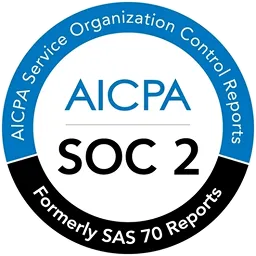
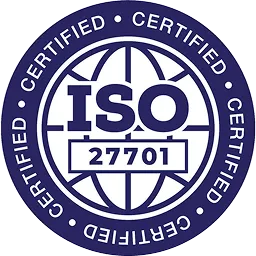
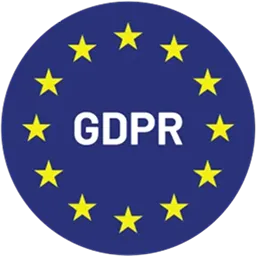
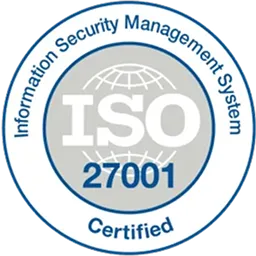
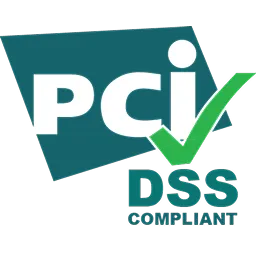
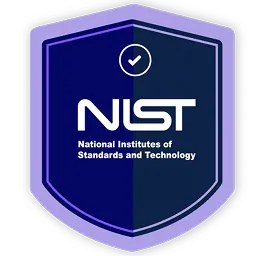
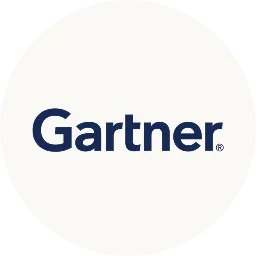
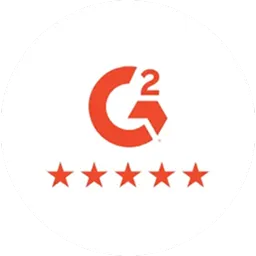
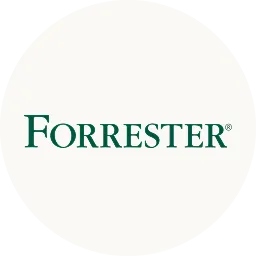
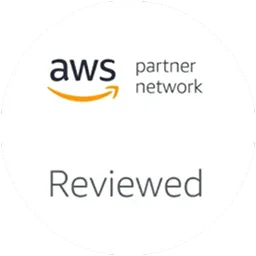

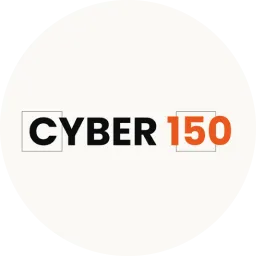













.webp)







.webp)
.webp)





.webp)